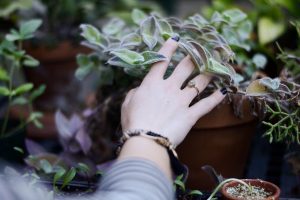How to Start and Maintain Your Own Garden
There’s something about the warmer weather and sunny skies that makes us want to be a little more adventurous. Whether that means taking up a new hobby, eating healthier, or just nourishing your soul after a long winter’s nap; trying something new, such as gardening, may be just what you need! In fact, gardening is said to reduce stress, lower blood pressure, and decrease symptoms of depression. It’s also an extremely rewarding process that many just aren’t so sure how to begin. Don’t worry—if you’re a beginner to gardening and don’t have much experience, we’ve got a few pointers to get you on your way to a full-fledged green thumb status. Let’s get started.
Consider your needs– The first thing you’ll want to do is establish what type of garden you’d like to have. What purpose will your garden serve? For example, would you like to grow vegetables to use for cooking? Maybe you’d like to grow some herbs to spruce up your dishes; or, you’d like to simply grow some beautiful flowers or succulents to decorate your home. Either way, each type of garden requires its own special care and maintenance, so be sure to choose a garden that complements your lifestyle and fits your needs as well.

Do your research– Before you go out and buy a huge selection of plants and equipment, you’ll want to do some research into the care of each type of plant. Take into account the amount of sunlight, water, and nurturing each type of plant needs. It may be a good idea to start small and begin with a few low-maintenance plants, before taking on a huge garden with many different ones. Gardens require a considerable time commitment, and must be nurtured carefully and consistently in order to thrive.
Plan the plot– Outdoor space is prime real estate for gardens, and making the best use of the space you have will help your garden to grow and flourish. Make sure you provide enough space and proper sunlight for your garden, and that it’s kept safely protected from rabbits, deer, and other hungry critters. This might require a fence, cover, or fishing wire around the perimeter of the plot.
Stay organized– Labels are a great idea for the beginner and expert gardeners alike. Labeling your plants can help you to keep track of where each plant will grow. You can achieve a natural look with your labels by writing on the faces of rocks at each base. Keep a record of the specific care instructions for each plant as well, either kept indoors or written on the bottom of the rock!
Leave room for expansion– If possible, leave room for more space for future expansion. As you get more comfortable with caring for your garden, you may want to take on more ambitious goals and expand! Keep in mind that because most plants are seasonal, many people rotate plants year round so that the garden is used efficiently and to its fullest potential. You may consider doing the same to conserve space!
Get creative– If your tomatoes didn’t turn out this time, then maybe juicing them to include in a dressing is the perfect way to avoid waste. Or, if your flowers look a little droopy, maybe you can dry and press them to make a beautiful piece of art to hang on your wall. The point is, there’s always a way to repurpose a bad crop or to a find another use for a bloom that didn’t quite turn out. Gardening isn’t a perfect process, and it takes some creativity to solve problems.
Take pride and have fun– Gardening is a rewarding process that comes with many physical and mental benefits. Take pride in your hard work! There’s no better feeling than watching the “fruits” of your labor come to life. There may be times where your patience is tested, but properly maintaining a garden takes love, dedication, and a little creativity. Happy digging!








